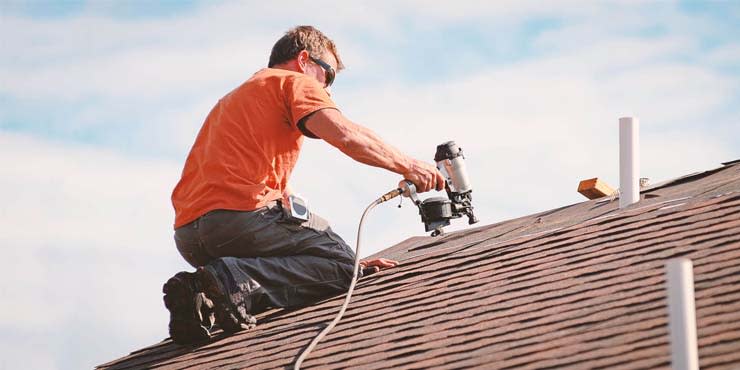
People don't tend to mind much about their cooling system till something goes wrong. As with a lot of things, preventative attention can go a long method. Of course, our Airmaxx service technicians enjoy to consider this things for you. We're readily available 24 hours a day for emergency repair work if anything goes wrong with your HVAC systems. Still, a little standard knowledge can save you a great deal of money and time.
A/c History
Ancient Egyptians used to cool their indoor air by hanging wet mats on their entrances. Even Benjamin Franklin - the developer whose kite experiment revealed much of what we now know about the nature of electrical power - messed around in the air conditioning world, working with associates to figure out how to manipulate liquids that have refrigerating residential or commercial properties. Regardless of these, and other, contributions, the invention of the first contemporary air conditioner in 1902 is credited by a lot of to Willis Carrier, an American engineer.
2. A/C Anatomy
It's handy to understand how the air conditioning system operates in the first place. This will help all other information to make sense, and will provide you a huge gratitude for the experts whose task it is to keep you're A/C in working order. The little things make a big difference.
- Inside your A/C, there is a set of pipes filled with refrigerant, which (just as it sounds) refrigerates-- or cools-- the air around it. The set of pipes is also called an evaporator coil.
- Hot air from outside is pumped into your a/c by a blower (or fan), running the air over the cooling coils, and blowing it into your house.
- The refrigerant in the evaporator coil modifications from a liquid into a gas while soaking up heat from the air.
- At the exact same time, the hot air inside your home is being pushed outside with another fan.
- The refrigerant is pumped outside the house to another coil (called a condenser), launching its heat and altering back (condensing) into a liquid.
- The refrigerant is moved back and forth within the air conditioner by a pump called a compressor, which manages the rate of movement so that the refrigeration and condensation happens within the ideal coil.
- Your A/C likewise has a motor, which runs the compressor.
3. Set The Right Temperature
As a general rule, your a/c unit can keep indoor temperatures about 20 degrees cooler than outdoors. This means that on a 100-degree day, your A/C might have a hard time to cool your house below 80 degrees. Setting the thermostat any lower than that will strain your system needlessly, and will most likely result in it continuously running in an honorable attempt to reach the cooler temperature. If the heat is excruciating, try using a ceiling, table, or other kind of fan to keep the air moving.
If you have a main unit, you can purchase a thermostat with a timer that can be set to adjust to greater temperatures when you're gone, and cooler temperature level when you're home. It's not a good concept to turn your unit off completely unless you're going on trip. Turning it off will result in the system needing to work additional hard to cool the home at a later time.
4. Change Your Filters
If you have a main or window system, you require to alter your filters about once a month throughout the cooling season. In-home filters have a minimum efficiency reporting value (MERV), which is a number in between 1 and 12. A higher MERV ranking ways higher filtering, and it is generally suggested that you utilize filters of a 6 or greater.
Modification Your Filters
If you're wondering why the filters are necessary, here's a quick description. They have a double purpose: 1) they keep particles from building up on the evaporator coil, which might eventually stop the unit from working, and 2) they avoid particles from being launched into the air inside your house.
Filter gunk (not a clinical term) will avoid the air from streaming freely, which will prevent you from maximizing your convenience. Modification your filters to keep the breeze ... and keep the peace.
5. Tidy Your Outdoor Condenser
Your condenser needs to endure a lot being exposed to the elements throughout the year. If you discover that your unit is not cooling also, it might be since the condenser needs cleansing. Leaves, twigs, grass, and other debris can get caught in its fins, and this will block its cooling capability.
Tidy Your Outdoor Condenser
Prior to you get started with the cleaning, make certain to turn the condenser off. This can be done by taking out a fuse block connecting the unit to your house, or moving the switch to the "off" position. Make certain that the temperature level is at least 60 degrees outside so that you can test the ac system to be sure that it works.
If you discover that they are bent, attempt using a butter knife from your cooking area to press them back into shape. Keep in mind to refer to your owner's manual for directions that are specific to your system.
That takes care of the exterior. Now let's speak about the condenser's insides.
6. Check Your Coolant Levels
The quantity of refrigerant in your A/C system is called its "charge." If there's a leak and the refrigerant charge decreases, you will have issues. A leakage will reduce your unit's capability to work appropriately, and your home won't get the cooling it needs.
Because of international warming, discovering the right cooling gases to use in residential and business residential or commercial properties has been a pretty big deal. Some have been figured out to be ozone-depleting substances by the Environmental Protection Agency (EPA), and are therefore prohibited from being utilized in new systems. Here's a run-down of what's ok and what's not:
- HCFC-22: This gas was banned in brand-new equipment in 2010 by the EPA. It is just available for older design A/C systems.

- R-410A: This is one alternative to HCFC-22, and is being utilized in the United States. It has a high worldwide warming impact, it triggers no ozone depletion.
- R-32: This gas is being assessed by the EPA, and is known for being slightly flammable. Its worldwide warming result is moderate, and it triggers no ozone depletion.
- Hydrocarbons: These are being used in industrial refrigeration, however not yet in houses, unless systems have been redesigned. The worldwide warming impact is low and there is no ozone deficiency.
It's not a great idea to try managing any of these coolants on your own, so contact your HVAC professional if you think that something is amiss with your coolant levels.
7. Maximize Your A/C's Effectiveness
If you have a fan, run it when your A/C is on so that the cool air can flow more easily. You need to likewise keep all doors in the house open so that air can stream freely.
If you have to make house repair work, such as changing your windows or your roofing, make decisions with the understanding that insulation is whatever. A home that is not well insulated will result in air leaks ... which require your a/c unit to work harder than it would generally need to. Correct insulation might cost more on the front end, however gradually, the savings will be significant.
Some other techniques to optimizing your air conditioning system's efficiency consist of:
- Using your washer/dryer during cooler times of the day.
- On cooler nights, opening windows so that the outdoor air can fill the house.
- Making sure your ducts are sealed to prevent air leakages. You can seal them yourself with mastic-- the thick, white, waterproof sealant that can be painted over them. Little ducts leakages can be sealed with foil tape.
- Keep the blinds on the west side of your home closed on hotter days.
8. Focus On Efficiency Rating
Along the lines of effectiveness, performance matters as well. If you have a central A/C system, inspect the seasonal energy-efficiency ratio, or the SEER. In a window unit, it is called the energy-efficiency ratio (EER). Your SEER needs to be at least a 13, and your EER must be no lower than 8. The higher the number, the less pricey and more efficient the system.
Buy a system that is a good match for your climate. If you live in a damp location, discover an A/C that likewise dehumidifies.
9. Get An Air Conditioning Check-Up Annually
Simply like our bodies and vehicles need check-ups, air conditioners benefit from them. Make certain your expert looks at the following: Get An Air Conditioning Check-Up Annually
- Inspecting and cleaning up coils,
- Replacing fan belts if needed,
- Checking refrigerant charge and pressures,
- Cleaning or changing filters if you're not able to do it,
- Lubricating motors and bearings,
- Cleaning and inspecting blowers and fans,
- Inspecting controls and securities, and
- Checking temperature level controls.
10. Humidity Matters More Than Heat
If you've ever noticed the condensation that can build up around air conditioning vents, you are conscious of the dehumidifying homes that the majority of A/C units have. They literally pull the moisture out of the air.
That your A/C does not have to do all the work alone, be sure to use your exhaust fans when bathing, showering, and cooking. You can likewise utilize a fan to assist blow a few of the air outdoors. If these alternatives aren't working as they should, purchase a separate dehumidifier to help things along. Sticky skin is the least of your concerns when thinking about the dangers of mold and damp environments. It can lead to upper respiratory tract problems, coughing, wheezing and swelling of asthma symptoms.
11. Choose A Unit That Makes Sense For You
The size of your air conditioning unit ought to be in proportion to the size of the space you want to cool off. If your A/C is too huge, it might cool the area quickly, but it won't effectively dehumidify the location. Energy Star uses a chart that will assist you decide just how much cooling capacity, measured in British thermal systems (BTU), you will need per hour. This cooling capacity is also called "tons"-- One lots of cooling equates to 12,000 BTU/hour.
Another thing to think Resources about is the benefits that come along with your purchase. When working out rates, focus on whether or not the price consists of a service plan, discounts on repair work, or a labor service warranty. Buying is only he primary step ... maintenance quickly follows.
12. Choose The Right HVAC Professional
The Air Conditioning expert you pick must be certified by a reputable company such as the Air Conditioning Contractors of America (ACCA). When you contact them to come to your house make sure to have information about your system's brand as well as the level of cooling and convenience you are desiring.
True experts will make certain you understand exactly what is going on with your central air conditioning system and will patiently make the effort to answer all your concerns.
About Pro Choice Orlando Roofing Company
Our company offers premium craftsmanship at unbeatable pricing. Customers choose Pro Choice Roofing because we truly stand behind our products, and offer quality that simply isn't found in the roofing industry. We provide asphalt shingle, metal, slate, tile, cedar shake and commercial roofing services! We are a one-stop shop for our customers, including other exterior services such as window replacement, gutter installation and siding replacement.
For more information contact:
Pro Choice Orlando Roofing Company
1060 Woodcock Rd #140
Orlando, Florida 32803
(407) 743-3793
https://www.prochoiceorlandoroofing.com
[email protected]